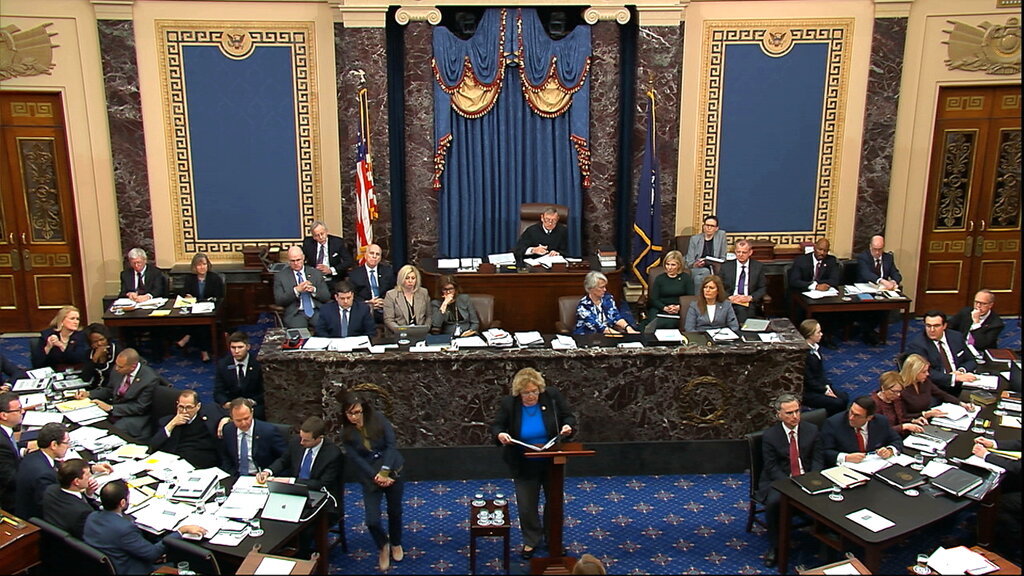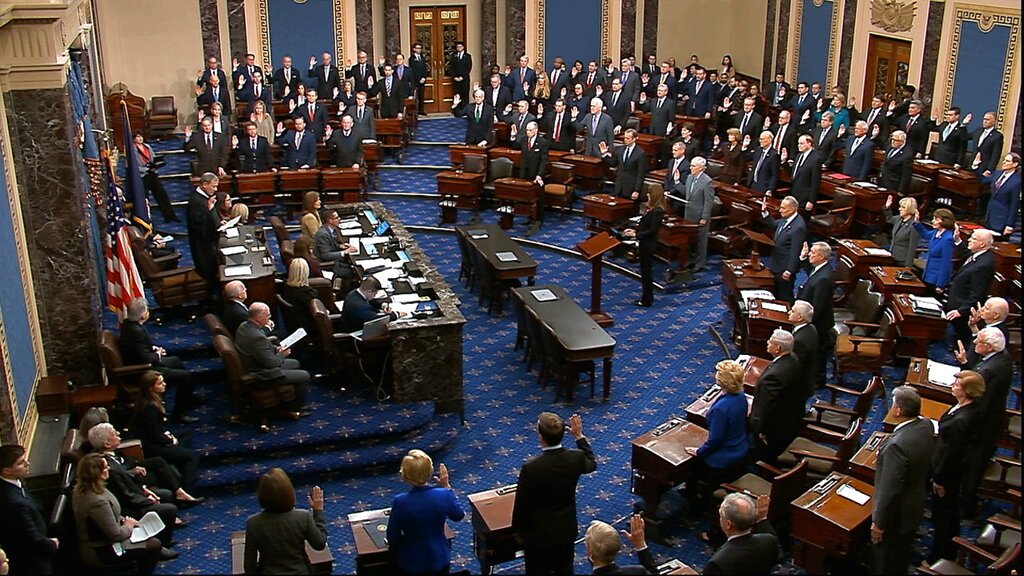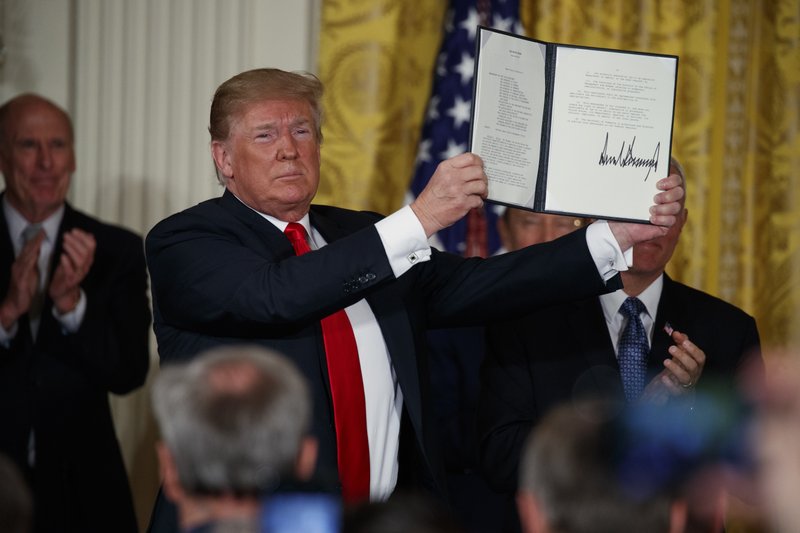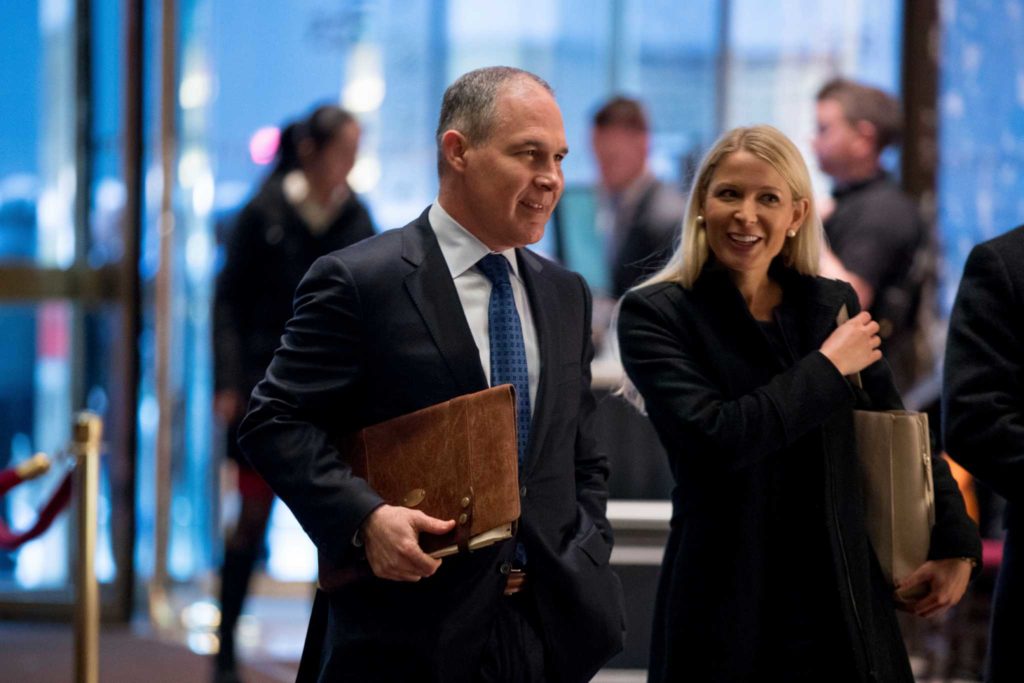Tommy Tuberville continues push to fully reopen U.S. Capitol, Senate to visitors

U.S. Senator Tommy Tuberville joined U.S. Senator Bill Hagerty in introducing a resolution supporting the full reopening of the U.S. Capitol and Senate Office Buildings to the American public. Tuberville has been vocal on returning the U.S. Capitol and Senate Office Buildings to pre-COVID visitation policies. The Capitol and Senate office buildings have remained largely closed to the public for nearly two years. This closure has restricted lawmakers’ ability to welcome constituents to their offices and arrange for Capitol tours. The resolution aims to recognize the importance of reopening the U.S. Capitol and Senate office buildings and support returning to the pre-COVID public visitation policies for areas within Senate jurisdiction. Senator Tuberville expressed the need to open the Capitol so that the public can watch the democratic process. “Two years ago, it was reasonable to close public access in the name of public health. But now, it is no longer justifiable to restrict the public’s access to Capitol Hill, and we must accept the reality that we will be living with COVID for the foreseeable future,” Tuberville commented. “It should not be the case that only Members of Congress, their staff, and a few select people be the only ones who can access the Capitol. Americans deserve to visit their country’s beacon of democracy.” Hagerty argued that the Capitol needs to be reopened because the rest of the U.S. has reopened. “It is long past time for the Senate to re-open its doors to those who sent us here to represent them—the American people,” stated Hagerty. “Thanks to Operation Warp Speed, vaccines have been available for over a year for those who want them, and Americans from coast to coast have learned to live their lives safely despite the pandemic. From stores to venues and most workplaces and schools, the rest of the United States has re-opened, and it’s time for the Senate to do the same.” Other senators who support the resolution include Senators John Thune (R-SD), Jerry Moran (R-KS), Marco Rubio (R-FL), Rick Scott (R-FL), James Inhofe (R-OK), James Lankford (R-OK), Mike Braun (R-IN), Thom Tillis (R-NC), Kevin Cramer (R-ND), Roger Wicker (R-MS), Cindy Hyde-Smith (R-MS), John Cornyn (R-TX), Cynthia Lummis (R-WY), Rand Paul (R-KY), John Hoeven (R-ND), Chuck Grassley (R-IA), John Kennedy (R-LA), Josh Hawley (R-MO), Ron Johnson (R-WI), John Boozman (R-AR), Roger Marshall (R-KS), Marsha Blackburn (R-TN), Mike Crapo (R-ID), Jim Risch (R-ID), and John Barrasso (R-WY).
Steve Flowers: Seniority vs. Senility

Our senior senator, Richard Shelby, will be remembered as Alabama’s most prominent senator when he retires next December. Folks, that’s saying a lot because we have had a host of prominent men serve Alabama in the United States Senate, such as giants like Lister Hill, John Sparkman, and John Bankhead. However, history will record that none of these above senators brought the federal dollars back home to Alabama that Shelby has procured. Seniority is omnipotent in Washington. It is everything, and Senator Shelby has it. He is in his 35th year in the U.S. Senate. He has already broken Senator Sparkman’s 32-year record of longevity in Alabama history and at the end of his term next year he will have served a record 36 years in the Senate. In addition, Shelby was the U.S. Congressman for the old 7th Congressional district for eight years. Shelby has not only been the most prolific funneler of federal dollars to Alabama in our state’s history but he could also be considered one of the most profound movers and shakers of federal funds to their state in American history. His only rival was the late Senator Robert Byrd of West Virginia. Senator Byrd, who was in his ninth term as a senator when he died at 92, funneled an estimated $10 billion to his constituents during his 51 years in the Senate. The obvious question asked by observers of Washington politics is, “Are some of our most powerful senators too old to function cognitively?” I can attest to you that I know Senator Richard Shelby personally and he is the most cognitively alert and healthy 87-year-old man I have ever seen. He works out daily and has the memory of an elephant. In fact, his mental and cognitive abilities are similar to someone 30 years his junior. He very well could run and serve another 6-year term. However, he will be 88 at the end of his term. Shelby is one of five octogenarians serving in the Senate. California’s Dianne Feinstein is the oldest sitting senator at 88. She is followed by Iowa’s Charles “Chuck” Grassley who turns 88 next month. Shelby is the third at 87. James Inhofe of Oklahoma and Senator Pat Leahy of Vermont are 81. By the way, Grassley and Leahy are Shelby’s closest allies in the Senate. The question becomes, “How old is too old to be a U.S. senator?” According to the Congressional Research Service, the average age of senators at the beginning of this year is 64-years. At some point voters have to weigh, “Is my senator too old to perform the duties of the office or does the weight and power of their seniority and the benefit of their influence to the state outweigh their energy and cognizance?” Voters tend to go with experience and seniority over youth. Senator Feinstein has been the most widely discussed current senator for a decline in health. Liberals believe she was too conciliatory during Supreme Court nominee Amy Coney Barrett’s confirmation hearing. There is a pervasive whispering campaign about Feinstein’s alleged cognitive decline and the Democratic senior leadership has indeed quietly removed her as the ranking Democrat on the Senate Judiciary Committee. It was common knowledge and apparent that Senator Shelby’s predecessor as Chairman of Appropriations, Senator Thad Cochran of Mississippi, was not very cognitive in his last years in the Senate although he was younger, chronically. The most notable example of possibly staying too long is probably the story of legendary Senator Strom Thurman of South Carolina. In 2003 Strom Thurman retired at the age of 100 after 48 years in the Senate. It was no secret that his staff did everything for him during his last six-year term. Our founding fathers created a minimum age for serving in the U.S. House or Senate but did not address a maximum. The owner of Grub’s Pharmacy used by many on Capitol Hill in Washington raised eyebrows in 2017 when he revealed he routinely sent Alzheimer’s medication to Capitol Hill. There are continuing attempts to pass a Constitutional Amendment to limit the terms of Congressmen and Senators. Republicans run on the issue of term limits. It was part of their contract with America Agenda in 1994. Alabamians need to consider being for term limits in 2022 because it comes down to the old adage of whose ox is being gourd. We in Alabama are going to be up the proverbial creek without a paddle after Shelby. He is our power in Washington. We need to all jump on the term limit bandwagon beginning next year. See you next week. Steve Flowers is Alabama’s leading political columnist. His weekly column appears in over 60 Alabama newspapers. He served 16 years in the state legislature. Steve may be reached at: www.steveflowers.us.
Mitch McConnell backs off, abruptly eases impeachment trial limits

McConnell acted after protests from senators, including fellow Republicans.
Donald Trump’s impeachment trial begins, senators vow ‘impartial justice’

Senators said later that when Roberts appeared the solemnity of the occasion took hold.
Donald Trump wants a Space Force, but Pentagon has different idea

President Donald Trump wants a Space Force, a new military service he says is needed to ensure American dominance in space. But the idea is gaining little traction at the Pentagon, where the president’s defense chief, Jim Mattis, says it would add burdensome bureaucracy and unwanted costs. The Pentagon acknowledges a need to revamp its much-criticized approach to defending U.S. economic and security interests in space, and it is moving in that direction. But it’s unclear whether this will satisfy Trump, who wants to go even further by creating a separate military space service. The administration intends to announce next week the results of a Pentagon study that is expected to call for creating a new military command — U.S. Space Command — to consolidate space warfighting forces and making other organizational changes short of establishing a separate service, which only Congress can do. Any legislative proposal to create a separate service would likely not be put on the table until next year. Mattis, who said prior to Trump’s “Space Force” announcement in June that he opposes creating a new branch of the military for space, said afterward that this would require “a lot of detailed planning.” Mattis is allied on this with key Republicans on Capitol Hill including Sen. James Inhofe, a member of the Senate Armed Services Committee who opposes a separate Space Force but is open to creating a Space Command. The command would coordinate the use of space forces of existing services, such as those that operate military satellites, but would not be a separate service. Mattis’s chief spokeswoman, Dana W. White, said Friday he believes that consolidating space functions will “ensure we move at the speed of relevancy. Space is a joint warfighting domain that the U.S. must dominate.” Trump mentioned as recently as Tuesday that he had ordered the Pentagon to begin the process of creating a Space Force as a new branch of the military, but he did not repeat the phrase he used in June — a “separate but equal” service. That may open the possibility of the Pentagon proposing to establish a cadre of space experts that would be part of a space “corps” attached to the Air Force rather than as a separate service. On Friday, Trump hailed the news that NASA has named the astronauts who will ride the first commercial capsules into orbit next year. “We have the greatest facilities in the world and we are now letting the private sector pay to use them,” he tweeted. “Exciting things happening. Space Force!” Trump’s focus has generated an unusual level of talk about space, but with little clarity. “At the moment, there is no concrete proposal on the table for what a Space Force will look like or what it will do,” said Brian Weeden, an Air Force veteran who is director of program planning at the Secure World Foundation, which promotes peaceful uses of outer space. “It’s just sort of a notional concept.” Weeden points out that creating a new service would not address what is generally seen as a need for a more coherent force to defend U.S. interests in space, since by law a service recruits, trains and equips troops but does not do combat. That is why a Space Command is being considered, since it would be the combat arm for space much as Central Command is the organization responsible for combat operations in the Middle East. Aside from the organizational issues, the Pentagon’s role in space is under scrutiny because of a recognition that the United States is increasingly reliant on satellites that are difficult to protect in space. Satellites provide communications, navigation, intelligence and other services vital to the military and the economy. Whereas space has long been America’s technological edge, it is increasingly seen as its Achilles’ heel. War in space is not just Hollywood fiction. The U.S. intelligence agencies reported earlier this year that Russia and China are pursuing “nondestructive and destructive” anti-satellite weapons for use during a future war. A related problem that the Pentagon has struggled to address is the sluggish pace of developing and acquiring satellites through the Air Force Space and Missile Systems Center, which could be replaced by a new space development agency. In an interim report to Congress in March on ways to reorganize its space organizations, the Pentagon said it is making changes to “ensure that we are prepared for” potential conflicts in space. This includes making satellites more resilient to potential attack by Russia or China. Deborah James, who was the civilian leader of the Air Force for the final three years of the Obama administration, said at a think tank forum Monday that creating a separate Space Force does not address the legitimate concerns about U.S. space defenses. One of the criticisms of the Air Force, which is the primary service responsible for military satellites, is that it devotes too little money and attention to space. “If money is your issue, Space Force is not your answer,” she said. If the logic of creating a separate space service were applied broadly, she said, it would imply other radical changes such as creating a single nuclear service by combining management of the strategic nuclear weapons of the Air Force and Navy, which no one is considering. Republished with the permission of the Associated Press.
EPA’s relief and worries after Scott Pruitt’s exit

Taking over from an ambitious predecessor known for seeking out the rich, powerful and conservative, the Environmental Protection Agency’s newly named acting chief has promised to reach out to anxious staffers throughout the demoralized agency and to lawmakers of both political parties. By late afternoon Friday, there had been no public comment from either Scott Pruitt, whose resignation President Donald Trump announced Thursday after months of Pruitt’s ethics scandals, or Andrew Wheeler, the Washington veteran and former coal lobbyist who Trump announced as the agency’s acting head. In an email sent out to EPA staffers Thursday night and obtained by the Associated Press, Wheeler said he was honored to take temporary leadership of the agency where he started his Washington career in the early 1990s, as an EPA employee dealing with toxic substances and other matters. “I look forward to working hard alongside all of you,” Wheeler wrote agency employees. Pruitt, Oklahoma’s attorney general at the time of his EPA appointment, had embraced the perks of office in Washington. He instituted unusual and costly round-the-clock protection for himself, flew premium class to Europe and North Africa, and directed agency staffers to help seek housing for his family, high-dollar employment for his wife, and pleasures such as luxury lotion and tickets to top sporting events. Trump had praised Pruitt for his regulation-trimming ways at EPA. On Thursday, however, Trump said Pruitt himself had concluded the EPA chief’s ethics scandals were too much of a distraction and was stepping down. Some EPA staffers linked to Pruitt’s tumultuous 17-month tenure feared for their jobs Friday, former top staffers under Pruitt said. That included the roughly 20 members of a security detail Pruitt’s EPA had created to guard him around the clock. The guards were originally trained for investigating environmental crimes. The agency’s security officials are expected to decide what level of protection Wheeler needs. “There’s definitely that fear” of a shake-up among Pruitt’s remaining political appointees, said Kevin Chmielewski, the former deputy chief of staff who fell out of favor with Pruitt after questioning spending. “This is the follow-up stories, the people’s lives he’s affected, going down to the agents and everyone else.” Some scientists and other career staffers, who learned of Pruitt’s departure through news and social media on Thursday, quietly expressed relief, Elizabeth Southerland, who quit last year as the science director at the agency’s Office of Water, said after hearing Thursday and Friday from many still at the agency. Wheeler’s public statements show him to be a skeptic, like Pruitt, about the extent to which coal, oil and gas emissions drive climate change, something that mainstream science says is indisputable fact. After leaving his four-year stint at the EPA in the 1990s, Wheeler became the top staffer for the Senate’s most ardent challenger of manmade climate-change, Republican Sen. James Inhofe of Oklahoma. Wheeler then went to work as a lobbyist for top coal companies and other businesses and interests. In a hearing on his appointment as the agency’s deputy administrator last November, Wheeler described himself as someone who “always tried to find common ground and work across the aisle” in Washington. Where Pruitt openly criticized the work of EPA employees under the Obama administration, Wheeler at the Senate committee hearing made a point of praising the agency’s career staffers as “some of the most dedicated and hard-working employees” in federal government. Wheeler told the Washington Examiner earlier this year he was focusing on repairing relationships with EPA career staff who bristled at Pruitt’s leadership. At the EPA, staffers expect Wheeler to stick to the agenda set by Pruitt and Trump: Cutting environmental regulations that the Trump administration and industries see as unnecessarily burdensome to business, Southerland, the former water official, said. “There’s not a single person who doesn’t think that will happen,” Southerland said of the current EPA staffers she has talked to. However, “they think at least the contemptuous behavior will stop,” she said. She was referring to allegations that Pruitt ignored all but his own political appointees at the agency, and used his office for personal gain. EPA’s press office sent out biographical information on Wheeler late Friday, but did not respond to interview requests for him. Republished with the permission of the Associated Press.
White House: Action needed now to slow climate change

Failure to act on climate change could cause an estimated 57,000 deaths a year in the United States from poor air quality by 2100, the Obama administration argued in a report released Monday that warns of dire effects of global warming. The report says inaction on climate change could cost billions of dollars a year in damage from rising sea levels, increased wildfires and drought, as well as higher costs for electricity to cool homes and businesses in hotter temperatures. The Environmental Protection Agency report argues that action now on climate could save billions in avoided costs for maintenance and repairs on roads and bridges made vulnerable by global warming and save the lives of an estimated 12,000 people in 49 U.S. cities who could die from extreme temperatures in 2100. The report comes as Republicans in Congress seek to undo the administration’s environmental policies, including an expected plan by the EPA to target coal-fired power plants, and days after Pope Francis issued a stern warning about global warming’s consequences, especially for the poor and underdeveloped nations. The National Oceanic and Atmospheric Administration said last month was the hottest May around the globe in 136 years of global records. A global health commission organized by the prestigious British medical journal Lancet recommended on Monday that substituting cleaner energy worldwide for coal will reduce air pollution and give Earth a better chance at avoiding dangerous climate change. The panel said hundreds of thousands of lives each year are at stake and global warming “threatens to undermine the last half century of gains in development and global health.” The White House report is part of a weeklong effort to emphasize climate change to mark the two-year anniversary of a “climate action plan” announced by President Barack Obama. While the most severe effects of global warming would not be felt for decades, the Obama administration said decisions about climate change need to be made now. “Decisions are not going to wait 50 years,” EPA Administrator Gina McCarthy told reporters at a White House briefing. “They are today’s decisions.” McCarthy called the report “a wake-up call for some who may not be aware” of the potential damages of climate change. Obama, in an interview out Monday with comedian Marc Maron for his popular podcast, said he was acting on his own on power plants and other environmental regulations because the GOP-controlled Congress has blocked more comprehensive efforts. “We’ll get that stuff done,” Obama said, adding that “it would be a lot better, it would be a lot more helpful, if we had some cooperation from Congress, and if I didn’t have the chairman of the energy and environment committee in the Senate holding up a snowball as if that was proof that climate change wasn’t happening, that would be useful.” Obama’s comments referred to Sen. James Inhofe, R-Okla., chairman of the Senate Environment and Public Works Committee, who tossed a snowball in the Senate chamber in February to demonstrate his claim that global warming is a hoax. The EPA report says actions to slow climate change could save about $3.1 billion in expected costs from sea-level rise and storm surge in 2100, while the power sector could save as much as $34 billion by 2050 in avoided costs for additional electricity for air conditioning and other uses. An estimated $3 billion in avoided damages from poor water quality could be saved by 2100, the report said. Actions begun in the next few years could reduce droughts by at least 40 percent by 2100 and save an estimated 6 million to 8 million acres from being burned by wildfires, the report said. It said meaningful actions also could prevent the loss of about one-third of U.S. supplies of oysters, scallops and clams by 2100, as well as 35 percent of Hawaiian coral reefs. Failure to act could lead to summers in Illinois to “feel like Louisiana” today, McCarthy said, while South Dakota summers may be as hot as those in Arkansas. The Republican-controlled House is expected to vote this week on a bill to scale back the plan on coal-fired power plants, the centerpiece of Obama’s second-term push to confront climate change. The bill would allow states to opt out of the plan if the governor determines it would cause significant rate hikes for electricity or harm reliability of service in the state. The bill also would delay the rule until all court challenges are completed. The House also is expected to take up a separate spending bill that would bar the EPA from enforcing the power plant rules, cut the agency’s budget and attack other prominent EPA regulations on air and water pollution. Obama has managed to thwart GOP efforts in the past, but Republicans are renewing their efforts now that they control the Senate as well as the House. Republished with permission of The Associated Press.


